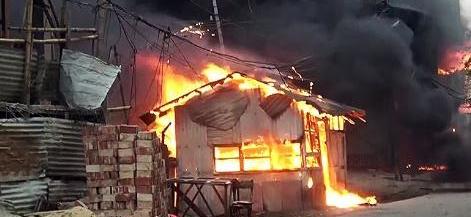
Manipur extends AFSPA in violence-hit hill areas for 6 months
text_fieldsGuwahati: The "disturbed area" designation under the Armed Forces (Special Powers) Act or Afspa will continue to be in effect throughout all of Manipur, with the exception of those areas covered by 19 police stations in the valley districts. The state government said on Wednesday that it chose to maintain the "status quo" in light of the current law and order situation.
The violence-hit state will begin implementing the "disturbed areas" notification on October 1 after it was issued on Wednesday. It is valid for six months, after which the Union Ministry of Home Affairs (MHA), after analysing the situation in Manipur, may periodically extend it, Indian Express reported.
The order, issued by the Home Department of the Manipur Government, said “It is not expedient to have a detailed assessment on the ground as the Sister Security Agencies are preoccupied with the maintenance of law and order” because of the prevailing situation in the state.
Stating it would be “premature” to decide on “such a sensitive matter without detailed assessment”, the order said it is “not appropriate” to review the “disturbed area” status.
Manipur has received the "disturbed area" designation under the Afspa since 1980; it was only lifted in 2004 in response to fierce demonstrations following the 2004 murder of 32-year-old Thangjam Manorama.
Since 2022, the "disturbed" areas have gradually decreased and as of April 1, 2023, the designation was removed from the 19 police stations spread around the state's Meitei-dominated valley.
Soon after, the ongoing ethnic conflict in the state broke out on May 3.
The order said the “issue of declaration of ‘Disturbed Area’ status is very sensitive and may likely attract public criticism and resistance if proper care is not taken.” It stated that the government has decided to “maintain status quo” keeping in view this sensitivity and “the overall law and order situation in the state and the capability of the State machineries”.
The Act permits an officer of the armed forces, among other things, to "fire upon or otherwise use force, even to the causing of death" against "any person who is acting in contravention of any law or order" if they believe it is necessary to do so. It also prohibits prosecution of those who act in accordance with the Act except with the permission of the Central Government.























